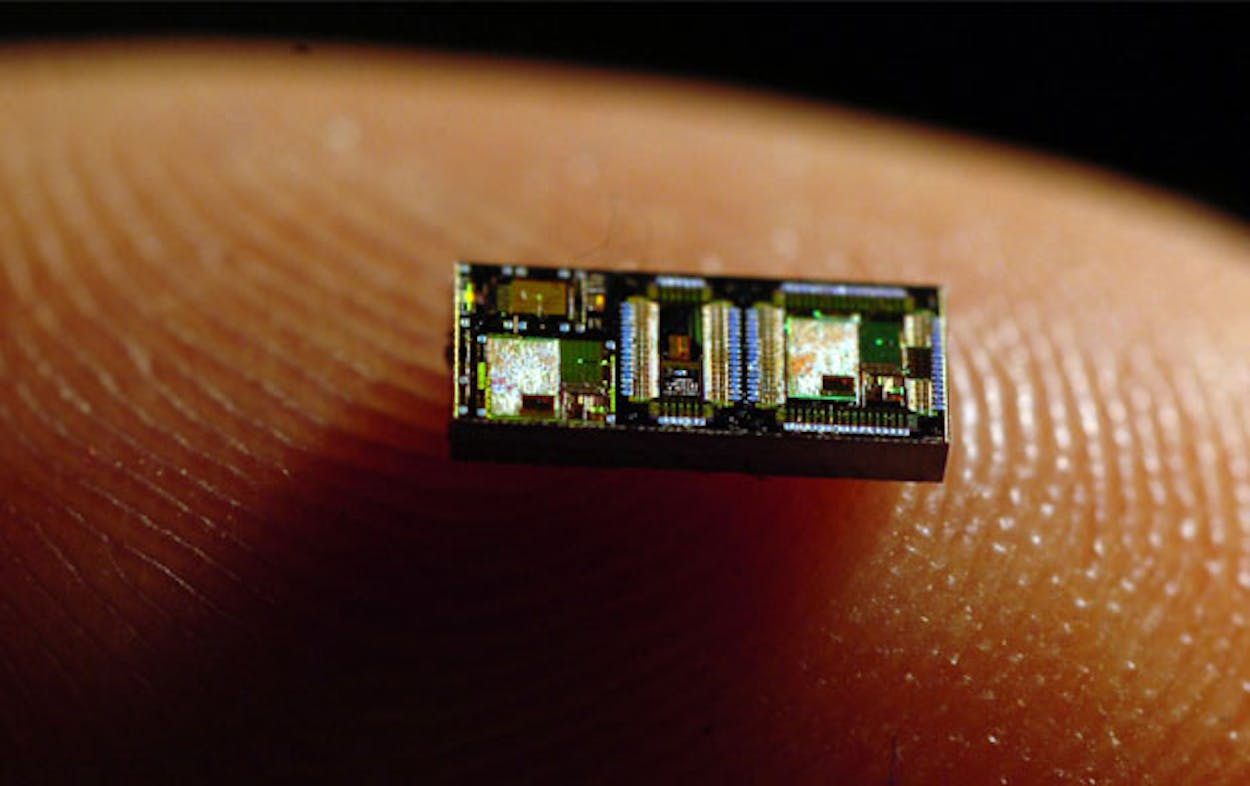A San Antonio school district is on the defensive after suspending a student who protested wearing a school ID embedded with a Radio Frequency Identification Device chip. The student objected on grounds of privacy and religion.
This Fall, Northside Independent School District launched a pilot program called the “Student Locator Project” at two schools, according to David Kravets at Wired‘s Threat Level blog, to track and monitor pupils throughout the day by having them carry student ID cards containing RFID chips. As Kravets explains, such chips are commonly found today in “passports, library and payment cards.”
Tracking students in this fashion appears to be motivated by school districts chasing education dollars. Kravets elaborates on the financial underpinnings of the idea:
Like most state-financed schools, the district’s budget is tied to average daily attendance. If a student is not in his seat during morning roll call, the district doesn’t receive daily funding for that pupil because the school has no way of knowing for sure if the student is there.
But with the RFID tracking, students not at their desk but tracked on campus are counted as being in school that day, and the district receives its daily allotment for that student.
While unorthodox, the use of RFID-tracking isn’t unprecendented in education, even in Texas: Spring ISD began using the chips in 2004 to monitor when elementary school children had exited schoolbusses and now uses them in the district’s high schools, the Texas Tribune reported in October.
Andrea Hernandez, a Christian sophomore at John Jay High School’s Science and Engineering Academy, believes the ID tags are problematic from a privacy perspective, but intolerable religiously. “I feel that it’s the implementation of the Mark of the Beast,” she told Infowars.com, a website run by Austin-based conspiracy theorist Alex Jones.
Religious objection to RFID tags isn’t new. Kravets reported in 2008 of Amish community farmers protesting rules requiring them to tag their livestock with RFID chips. Evangelicals compare RFID chips to the passage in Revelation 13:16-18, which says:
He causes all, both small and great, rich and poor, free and slave, to receive a mark on their right hand or on their foreheads, and that no one may buy or sell except one who has the mark or the name of the beast, or the number of his name. Here is wisdom. Let him who has understanding calculate the number of the beast, for it is the number of a man: His number is 666.
The San Antonio Current outlines some of the tactics Hernandez used to protest the project. “They’ve protested outside the school, spoken out at school board meetings, and Hernandez this month tried to pass out fliers on campus criticizing the program.” All of this led up to Hernandez’s suspension from the magnet school. She was instructed in a letter to report to nearby Taft High School.
The Hernandez family objected to Andrea’s suspension, and last week a district court judge in Bexar County granted the family’s request for a temporary restraining order that halted the suspension. A hearing on the case is set for Wednesday.
John W. Whitehead, president of the Rutherford Institute, a civil liberties and human rights advocacy group that is providing legal assistance to the family, applauded the judge’s decision in a statement:
The court’s willingness to grant a temporary restraining order is a good first step, but there is still a long way to go—not just in this case, but dealing with the mindset, in general, that everyone needs to be monitored and controlled. Regimes in the past have always started with the schools, where they develop a compliant citizenry. These ‘Student Locator’ programs are ultimately aimed at getting students used to living in a total surveillance state where there will be no privacy, and wherever you go and whatever you text or email will be watched by the government.
Lawyers for the Rutherford Institute are prepared to argue that the RFID program violates both the Texas’ Religious Freedom Act and the First and Fourteenth Amendments.






